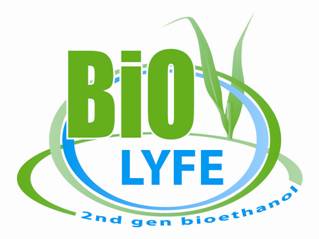|
First BIOCORE Biorefining School
The EU project BIOCORE, coordinated by INRA (France), analyses the industrial feasibility of a biorefinery concept that will allow the conversion of cereal by-products (straws etc.), forestry residues and short rotation wood crops into 2nd generation biofuels and other products.
The BIOCORE partners organised the 1st European training course on Biorefinery in Paris, France (29 August - 1 September 2011) and 120 participants from European academia and industry followed the interesting 4-day-program.
Day 1 aimed at providing an introduction on different biorefining concepts and at providing a general overview of the current status and developments within the field of biorefining. The concepts presented included Lignocellulosic Feedstock Biorefineries (Hans Reith, ECN), Green Biorefineries (Edwin Keijsers, Wageningen University), Algae-based Biorefineries (Maria Barbosa, Wageningen University), and Environmental Biorefineries using waste and wastewater (Philippe Steyer, INRA). In addition, an overview on biorefinery classification systems and LCA analyses was given (Gerfried Jungmeier, Joanneum Research). Finally, the program included the view of industry representatives (DSM, Syral, Avantium) on business strategies for the bioeconomy.
On day 2, the participants visited the biorefinery complex Bazancourt. This industrial site developed around conventional agricultural activities such as sugar beet refining (Cristal Union) and wheat processing (agricultural cooperative organisations Champagne Céréales, SICLAE and their subsidiaries). In order to diversify their product ranges, these companies added to their portfolio a plant for the production of first generation ethanol from sugar beet and wheat (Cristanol, with a production capacity of 280,000 tons) and a plant processing 400,000 tons of wheat per year to glucose syrups, starch products, proteins and a number of other products (Chamtor). Finally, a centre for agri-industrial research and development (ARD) was initiated in order to develop innovative processes and products and to open new commercial opportunities for conventional crops. ARD today is involved in a number of activities such as the production of bio-based succinic acid (BioAmber), plant-based cosmetic ingredients (Soliance), or Alkyl-Poly-Pentosides from wheat (Wheatoleo). More recently, ARD, together with the local industry partners and other French organisations started the FUTUROL project, aiming at the development and industry-scale demonstration of second generation ethanol production.

The biorefinery complex near Bazancourt, France (Photo: Cristal Union)
On days 3 and 4, the training course offered more in-depth courses on topics such as feedstock production for biorefineries, biomass pre-treatment, hydrolysis and fermentation, process design and analytics, and industrial biotechnology.
Videos of the presentations are available here.
|
|
The NEMO project – Scientific research results for industrial utilization of lignocellulosic biomass
In the EU-funded NEMO project, 19 partners from R&D and industry are working on the development of technological improvements for the production of ethanol from lignocellulosic feedstocks such as wheat straw, giant reed (Arundo donax), and spruce wood.
The three major project objectives are the discovery and optimization of new cellulases and hemicellulases, the development of robust, co-fermenting yeast strains, and the integration of novel enzymes and microbes into optimized production process configurations.
By screening hundreds of fungal strains as well as bacterial genomes and metagenomes, a number of cellulases, hemicellulases and other enzymes involved in biomass hydrolysis with interesting properties, such as superior thermostability, have been identified and used to formulate improved enzyme mixtures.
In order to develop improved yeast strains for ethanol production, the work started with the establishment and screening of an extensive yeast bank that revealed several strains with superior properties (e.g. ethanol and temperature tolerance). In parallel, genetic and evolutionary engineering is used to produce new yeast strains with the desired properties and first strains with improved performance have been obtained.
The NEMO partners seek the cooperation with external partners for transferring the most promising results to industry applications. For more information, please contact WIP ([email protected]) or the NEMO coordinator Prof. Merja Penttilä from VTT ([email protected]). Visit the project website at http://nemo.vtt.fi. |


